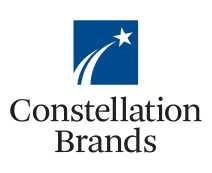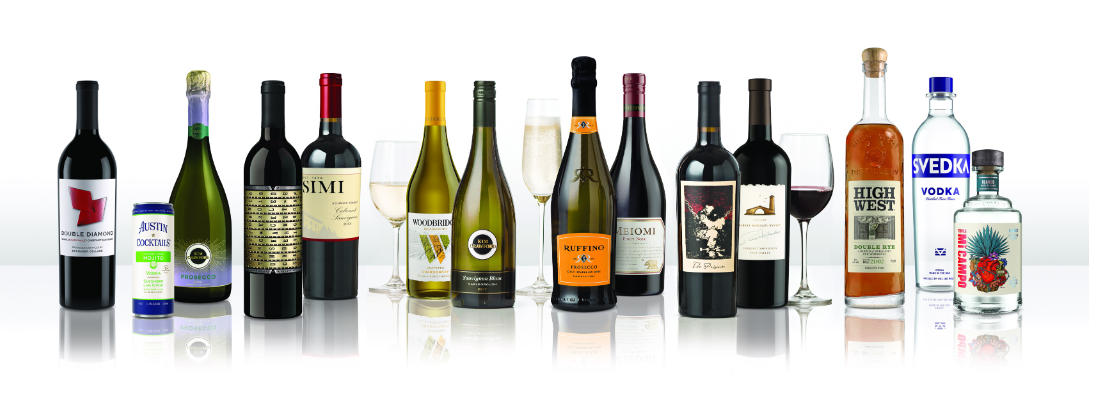Constellation Brands, Inc.
Summary
- Constellation Brands, Inc. is a producer, importer, and market of beer, wine and spirits. The company has operations in the United States, Canada, Mexico, New Zealand, and Italy.
- CBI was established in 1945 and assumed its current name in 2000.
- Constellation has four reportable business segments - Beer, Wine and Spirits, Corporate Operations and Other, and Canopy.
- During the fiscal ended February 28, 2023, Constellation Brands has reported net sales of $9,452.6 million which was $8,820.7 million a year earlier, an increase of 7%. Gross profit for the years is $4,769 million and $4,707.3 million, respectively.
- Operating income for the years is $2,842.9 million and $2,331.7 million, respectively, an increase of 22% year-on-year. However, the company ended up with a net loss attributable to CBI of $71.0 million in fiscal 2023, as compared to $40.4 million a year earlier.
Brief Company Overview
 Constellation Brands, Inc. (NYSE:STZ), together with its subsidiaries, produces, imports, markets, and sells beer, wine, and spirits in the United States, Canada, Mexico, New Zealand, and Italy. The company provides beer primarily under the Corona Extra, Corona Premier, Corona Familiar, Corona Light, Corona Refresca, Corona Hard Seltzer, Modelo Especial, Modelo Negra, Modelo Chelada, Victoria, Vicky Chamoy, and Pacifico brands. The company company was established in 1945 and in the first year of its operation it sold 200,000 gallons of wine grossing $150,000. It is the third largest beer company in the USA according the reported revenue of 2021.1
Constellation Brands, Inc. (NYSE:STZ), together with its subsidiaries, produces, imports, markets, and sells beer, wine, and spirits in the United States, Canada, Mexico, New Zealand, and Italy. The company provides beer primarily under the Corona Extra, Corona Premier, Corona Familiar, Corona Light, Corona Refresca, Corona Hard Seltzer, Modelo Especial, Modelo Negra, Modelo Chelada, Victoria, Vicky Chamoy, and Pacifico brands. The company company was established in 1945 and in the first year of its operation it sold 200,000 gallons of wine grossing $150,000. It is the third largest beer company in the USA according the reported revenue of 2021.1
The company supplies its brands to the wholesale distributors, retailers, and on-premise locations. Business of Constellation Brands is conducted through wholly-owned subsidiaries, a variety of joint ventures and other entities. Constellation has four reportable business segments - Beer, Wine and Spirits, Corporate Operations and Other, and Canopy.
As of June, 2023, the company had 52-week share price range of $208.12 to $261.32. Trailing P/E ratio of the company is 359.38 times, price to sales ratio (ttm) is 4.61 times, profit margin is -0.75%, operating margin is 30.82%, return on assets (ttm) is 7.21%, return on equity is -0.37%, diluted earnings per share (ttm) is -$0.12. The company has a stock split history to the ratio of 2:1 on May 15, 2005. Number of shares outstanding as of April 13, 2023 is $0.01 par value Class A common stock 183,231,968 shares and $0.01 par value Class 1 common stock 22,705 shares.

Recent Developments
- In March 2023, Constellation Brands has entered into a definitive agreement to sell its Daleville Facility. The transaction is expected to company during the three months ending May 31, 2023. The proceed is to be used for general corporate purposes, including retirement of debt.
- During fiscal 2023, the Canopy Equity Method Investment with a carrying value of $1,695.1 million was written down to its estimated fair value of $634.8 million, resulting in an impairment of $1,060.3 million. This loss from impairment was included in income (loss) from unconsolidated investments within our consolidated results for Fiscal 2023.
- In October 2022, the company sold certain of their mainstream and premium wine brands and related inventory. The company received a cash proceed of $96.7 million and recognized a gain of $15.0 million from the transaction.
- In April 2022, the company acquired remaining 73% ownership interest in Austin Cocktails, which included a portfolio of small batch, RTD cocktails.
- In March 2022, the company acquired the Lingua Franca business, including a collection of Oregon-based luxury wines, a vineyard, and a production facility.
Recent Financing Activities
- In April 2023, Constellation Brands extended the maturity of the Canopy Debt Securities by exchanging them for the 2023 Canopy Promissory Note for an amount of C$100 million.
- In July 2022, Constellation Brands received 29.2 million common shares of Canopy following the exchange of C$100.0 million principal amount of the Canopy Debt Securities.
Financial Performance Highlights
Annual Performance Highlights
During the fiscal ended February 28, 2023, Constellation Brands has reported net sales of $9,452.6 million which was $8,820.7 million a year earlier, an increase of 7%. Gross profit for the years is $4,769 million and $4,707.3 million, respectively. Gross profit as a percent of net sales decreased to 50.5% for Fiscal 2023 compared with 53.4% for Fiscal 2022. Operating income for the years is $2,842.9 million and $2,331.7 million, respectively, an increase of 22% year-on-year. However, the company ended up with a net loss attributable to CBI of $71.0 million in fiscal 2023, as compared to $40.4 million a year earlier.
Results of operation and a net loss situation is mainly driven by the impairment loss of $1,060.3 million due to the unrealized net loss from the changes in fair value of the investment in Canopy. Among the other reasons, as cited by the company, there is an impairment of long-lived assets for Fiscal 2022 in connection with certain assets at the Mexicali Brewery, a higher operational and logistics costs within both the Beer and Wine and Spirits segments.
Net loss attributable to CBI increased to $71.0 million for Fiscal 2023 from $40.4 million for Fiscal 2022. This increase of $30.6 million, or 76%, is largely attributable to ![]() the impairment of our Canopy Equity Method Investment, (ii) the increase in equity losses from Canopy’s results, and (iii) the increase in the provision for income taxes, partially offset by
the impairment of our Canopy Equity Method Investment, (ii) the increase in equity losses from Canopy’s results, and (iii) the increase in the provision for income taxes, partially offset by ![]() the decrease in unrealized net loss from the changes in fair value of the investment in Canopy, (ii) the impairment of long-lived assets for Fiscal 2022 in connection with certain assets at the Mexicali Brewery, and (iii) the improvements within the Beer segment.
the decrease in unrealized net loss from the changes in fair value of the investment in Canopy, (ii) the impairment of long-lived assets for Fiscal 2022 in connection with certain assets at the Mexicali Brewery, and (iii) the improvements within the Beer segment.
In the total net sales of fiscal 2023, the beer segment represents $7,465.0 million, wine represents $1,722.7 million and spirits represent $264.9 million; 78.97%, 18.22%, and 2.81%, respectively.
Beer segment sales has increased from $6,751.6 million in fiscal 2022 to $7,465.0 million in fiscal 2023. The increase is largely due to $463.9 million volume growth within the Mexican beer portfolio, $279.7 million favorable impact from pricing in select market within the Mexican beer portfolio. The increase was partially offset by $26.8 million of unfavorable product mix primarily from a shift in package types.
Net sales in wine and spirits segment has decreased from $2,069.1 million in fiscal 2022 to $1,987.6 million in fiscal 2023. The decrease in Wine and Spirits net sales is due to $44.1 million decrease from the 2022 Wine Divestiture and a $37.4 million decrease in organic net sales. The decrease in organic net sales is driven by a $148.0 million decrease in branded wine and spirits shipment volume, including impacts from global supply chain constraints. The decrease is partially offset by impacts from favorable product mix, non-branded net sales driven by DTC, and favorable impact from pricing.
Net cash provided by operating activities of the company during fiscal 2023 is $2,756.9 million which was $2,705.4 million a year earlier, an increase of $51.5 million. Cash flow used in investing activities during the years are $999.4 million and $1,035.8 million, respectively. Cash used in financing activities is also $1,819.9 million and $1,929.5 million, respectively.
Business Overview
Constellation Brands is a producer and marketer of beer, wine, and spirits. The company operates in the U.S., Mexico, New Zealand, and Italy. Previously, it also operated in the UK, Australia, and Canada, but the company exited those businesses. The brands of the company include Corona Extra, Modelo Especial, the Robert Mondavi Brand Family, Kim Crawford, Meiomi, The Prisoner Wine Company, High West, Casa Noble, and Mi CAMPO. The business of the company is conducted through wholly owned subsidiaries, a variety of joint ventures, and other entities.
Constellation Brands has four reportable segments: Beer, Wine and Spirits, Corporate Operations and Other, and Canopy.
Beer Segment
Constellation Brands is the #1 brewer and seller of imported beer in the U.S. market. It is also the leader in the high-end segment of the U.S. beer market, which includes the imported, craft, and ABA categories. The company has the exclusive right to import, market, and sell some high-end Mexican brands in all 50 states of the U.S. The brands are: Corona Extra, Corona Premier, Corona Familiar, Corona Light, Corona Refresca, Corona Hard Seltzer, Modelo Especial, Modelo Negra, Modelo Chelada, Victoria, Vicky Chamoy, and Pacifico.

Some of the achievements of this segment in the U.S. are that it has have of the top 15 top-selling imported beer brands, Modelo Especial is the best-selling imported beer and second best-selling beer overall, Corona Extra is the second largest imported beer and fourth best-selling beer overall, and Pacifico is the fastest growing major beer brand.
The production capacity in Mexico is increased through incremental investment by the company after acquisition of imported beer business in 2013. The company has invested approximately $6.4 billion in the Mexico Beer Projects, with over $750 million spent during Fiscal 2023. Brewery capacity of the company increased to 42 million hectoliters in fiscal 2023. Constellation Brands expects to spend an additional $4.0 billion to $4.5 billion over Fiscal 2024 through Fiscal 2026.
Wine and Spirits Segment
Constellation Brands is also a leading and higher-end wine and spirits company in the U.S. market, with a portfolio that includes higher-margin, higher-growth wine and
spirits brands. The wine portfolio is supported by grapes purchased from independent growers, primarily in the U.S. and New Zealand, and vineyard holdings in the U.S., New Zealand, and Italy. The wine and spirit brands are marketed primarily in the U.S. and also sold in Canada, New Zealand, and other major world markets.
In the U.S., Constellation Brands has seven of the 100 top-selling higher-end wine brands, with Meiomi and Kim Crawford achieving the fourth and eighth spots, respectively. Some of the well-known wine brands of the company are Cook's California Champagne, Kim Crawford, Meiomi, Mount Veeder, Ruffino, SIMI etc.; some wine portfolio brands are My Favorite Neighbor, Robert Mondavi Winery, Schrader, The Prisoner Wine Company; some well-known spirit brands are Casa Noble, Copper & Kings, High West, Mi CAMPO, Nelson's Green Brier, and SVEDKA.

Corporate Operations and Other segment
The Corporate Operations and Other segment includes traditional corporate-related items including costs of executive management, corporate development, corporate finance, corporate growth and strategy, human resources, internal audit, investor relations, IT, legal, and public relations, as well as investments made through corporate venture capital function.
Canopy Segment
The ownership interest in Canopy allows the company to exert significant influence but not control. Therefore, Constellation Brands accounts the investment under equity method. The company owns less than 100% of the shares is Canopy. If the Canopy Transaction is completed, including conversion of the Canopy common shares into Exchangeable Shares, the company expects internal management financial reporting to consist of two business divisions: ![]() Beer and (ii) Wine and Spirits and it will report the operating results in three segments:
Beer and (ii) Wine and Spirits and it will report the operating results in three segments: ![]() Beer, (ii) Wine and Spirits, and (iii) Corporate Operations and Other.
Beer, (ii) Wine and Spirits, and (iii) Corporate Operations and Other.
Other Business Information
In the U.S., the products of the company are primarily distributed by wholesale distributors, which generally have separate distribution networks for the beer portfolio, and wine and spirit portfolio. There are some states where the government is the distributor, thus, the company distributes through state alcohol beverage control agencies. The agencies set retail prices for the products.
Constellation Brands need to compete on the basis of quality, price, brand recognition and reputation, and distribution strength. The competitors range from numerous multinational producers and distributors of beverage alcohol products, retail stores, restaurant presence, and wholesaler attention. Major competitors include Anheuser-Busch InBev, The Boston Beer Company, Heineken, Mark Anthony, Molson Coors in Beer segment; Deutsch Family Wine & Spirits, Duckhorn Portfolio, E. & J. Gallo Winery, Ste. Michelle Wine Estates, Treasury Wine Estates, Trinchero Family Estates, The Wine Group in Wine segment; and Bacardi USA, Beam Suntory, Brown-Forman, Diageo, Fifth Generation, Pernod Ricard, Sazerac Company in Spirits segment. Canopy operates in the adult-use and medicinal cannabis markets and, in their largest market, they compete with numerous licensed producers and distributors as well as illegal growers and retailers of cannabis products.
As of February 28, 2023, Constellation Brands had a production capacity of 42 million hectoliters, which it expects to increase to 67 to 72 million hectoliters by the end of fiscal 2026. The company operates twelve, two, and five wineries in the U.S., New Zealand, and Italy, respectively. Five distilleries of the company are under operation in the U.S. for the production of spirits.
Fiscal year of the company ends at the end of February each year. The business of the company has seasonality impacts. Beer sales are typically highest during the first and second quarters of the fiscal year, wine and spirits sales are typically highest during the third quarter of the fiscal year, primarily due to seasonal holiday buying.
Company History2
Marvin Sands purchased Canandaigua Industries in 1945 to give a starter to the history of what is today Constellation Brands. With only eight employees, he sold bulk wine in barrels to bottlers in the East. In this first year, the company sold approximately 200,000 gallons of wine and has gross sales of $150,000. By 1951, the company registered $1 million in sales. It introduced a first brand namely Richard's Wild Irish Rose to spearhead the growth of the company. The WIld Irish Rose went out for a explosive demand in the market and the company introduced its own production facilities as well as its unique franchising system to meet demand. By 1961, Canandaigua Industries doubles its gross sales from $4 million to $8 million in just two years.
In 1972, it changed its name to Canandaigua Wine Company, Inc. and went public on the New York Stock Exchange in 1973. Brand acquisitions in the 1970s fueled the company's growth, and in 1974 the company heads west to acquire a majority interest in the Bisceglia Brothers Winery in Madera, California. This gave the company access to a large varietal wine market in the western United States. The company introduces J. Roget Champagne, which quickly becomes the second-largest selling champagne brand in the U.S.
By 1980, Canandaigua Wine Company becomes the eighth-largest U.S. wine producer with net sales reaching $50.5 million. In 1984, Sun Country Cooler is launched which catches like wildfire across the U.S. and 1 million cases are sold within six months. It because #2 best-selling wine cooler.
Widmer Wine Cellars, one of the most successful and popular producers of table wine on the east coast, and Manischewitz, the best-selling brand in kosher wines, became part of the company in 1987. By 1990, the company was marketing 100 brands in all wine classifications. The company acquires Barton Incorporated in 1993, which doubles the size of Canandaigua.

In 1997, the company becomes Canandaigua Brands, Inc., parent company of Canandaigua Wine Company and Barton Incorporated, following a decade of acquisitions resulting in a diversified product portfolio. Company net sales reach $1.1 billion. In 1999, The company acquires eight Canadian whisky brands and production facilities, including Black Velvet, the #3 Canadian whisky brand in the U.S.
The company changes its name in 2000 to Constellation Brands, Inc. to better reflect its broad range of brands across wine, spirits & beer. Pacific Wine Partners, a 50/50 joint venture of Constellation and BRL Hardy, becomes a wholly owned subsidiary in 2003 and the Australian arm of the business and is renamed Hardy Wine Co. With the acquisition, Constellation becomes the world's largest producer and marketer of wine, and the first truly international wine company with sales of more than 80 million cases of wine annually.
In 2005, Constellation Brands is added to the S&P 500 Index. With the completion of acquisition of Canadian wine company Vincor International in 2006, Constellation Brands enters its fifth core market (with the U.S., U.K., Australia and New Zealand). Constellation inherits Vincor's position as Canada's largest wine producer and marketer.
In 2007, Constellation acquires some iconic wine brands like Clos du Bois, Wild Horse, Spirits Marque One - which owns SVEDKA Vodka, produced in Sweden and remained the fastest-growing major premium spirits brand in the world for the five-year period ending in 2007.
In 2011, the company sold its Australian and U.K. business. The company enters the Italian market through acquisition of Ruffino in 2012. Constellation purchases remaining 60% of Ruffino in 2012, an internationally recognized Old World wine brand that sets the standard for Italian wines. The company also acquires Mark West, one of the fastest-growing major pinot noirs in the market.
Constellation acquires Grupo Modelo’s U.S. beer business in 2013, which provides Constellation with a state-of-the-art brewery in Nava, Coahuila Mexico and exclusive perpetual brand license in the U.S. to import, market and sell Corona and the Modelo brands and the freedom to develop brand extensions and innovations for the U.S. market. Constellation finalizes a joint venture with Owens-Illinois (O-I) in 2014 and acquires a state-of-the-art glass production plant, located adjacent to Constellation’s brewery in Nava, Coahuila, Mexico.
In 2016, Constellation sold its Canadian wine business to Ontario Teachers’ Pension Plan.
In 2017, Constellation signs an agreement to acquire a minority stake in Canopy Growth Corporation, a well-respected public company in Canada and leading provider of medicinal cannabis products, Staying ahead of consumer trends and to exchange knowledge and expertise. Constellation Brands increases its investment and ownership stake in Canopy Growth Corporation in 2018, a leading diversified cannabis company. The ~$4 billion USD [$5 billion CAD] investment expands the two companies’ strategic partnership and positions Canopy Growth as the global leader in cannabis production, branding, intellectual property and retailing.




